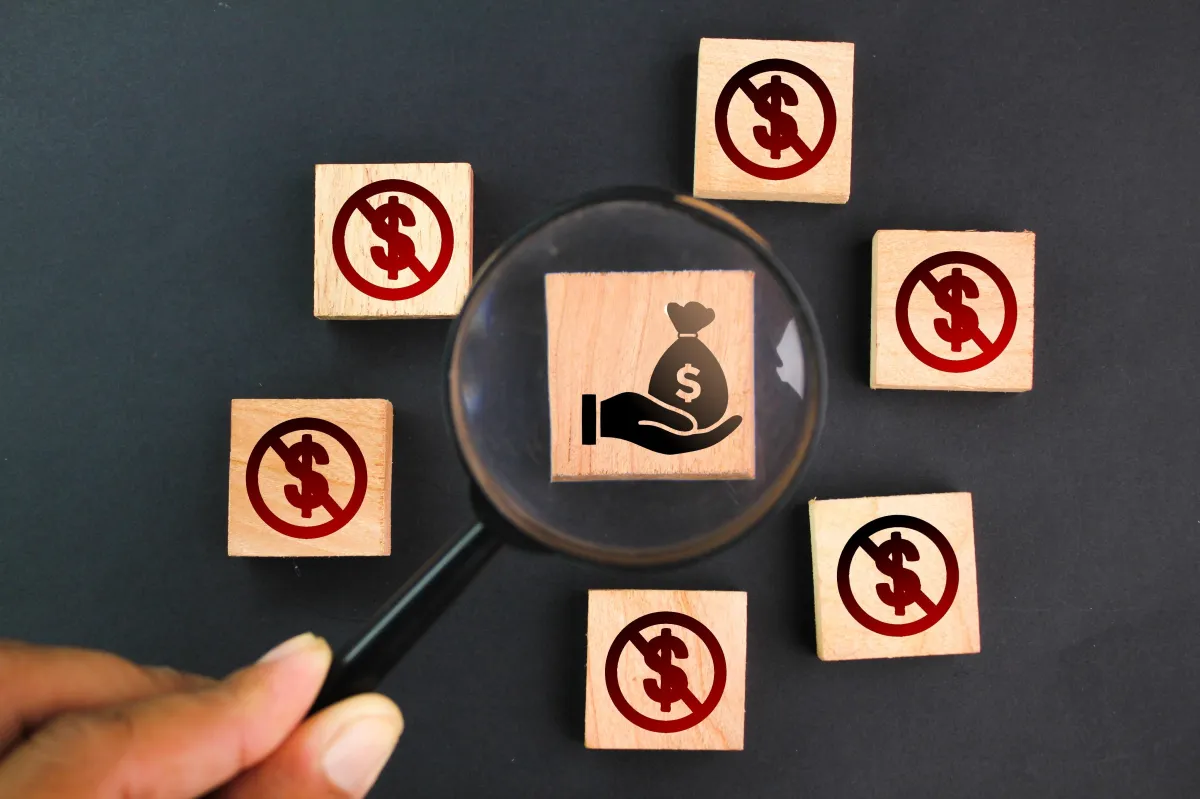Why Tax Liens Alone Won’t Make You Rich
Main Points
Many new investors hear about tax lien investing and believe it’s a quick path to financial freedom, offering high returns, government protection, and minimal headaches from tenants or property renovations. It sounds almost too good to be true… and in a way, it is.
The truth is, tax liens alone won’t make you rich.
They can be an excellent source of steady, secure income, but they’re not meant to create the kind of wealth that comes from owning real property. The returns are limited, the payout schedule is unpredictable, and tax liens rarely end up resulting in real property ownership.
In this article, we’ll break down why tax liens can fall short as a standalone investment strategy, and how experienced investors use tax deeds alongside them to create steady income and unlock long-term financial success.

1. The Returns Aren’t Life-Changing
One of the biggest misconceptions about tax lien certificate investing is that the interest rates alone can make you wealthy. While it’s true that liens can earn anywhere from 8% to 24% annual interest depending on the state, the actual returns are often far lower in practice.
For example, data from Maricopa County, Arizona, one of the nation’s largest and most active tax lien markets, shows that the average realized interest rate for investors typically hovers between 2% and 6% after competitive bidding. This demonstrates that while the initial interest rates may sound impressive, competition among investors drives the real-world returns much lower.
In addition to this, the investor has no control over when the homeowner decides to redeem. Even when they redeem, the payout represents simple interest, not compound growth. That means your money sits idle until the homeowner repays the taxes, and you can’t reinvest those earnings until the redemption occurs.
When you look at the numbers, tax liens simply don’t deliver the kind of wealth most investors are after. You’d need a significant amount of capital just to see meaningful returns. They're a smart starting point to fully understand tax-defaulted property investing, and a wonderful vehicle for established investors with money that would otherwise be sitting idle in a low-yield savings or money market account.
But don’t worry, this is exactly where tax deeds come in. While liens can help you earn predictable interest, tax deeds open the door to real property ownership and far greater profit potential, giving you the opportunity to build lasting wealth rather than interest alone.
2. You Don’t Control the Payout
Another overlooked aspect of tax lien investing is that you don’t control when you get paid. Once you’ve purchased a lien, the timeline for repayment is entirely in the hands of the property owner. They could redeem the lien in a few months or take several years. In some rare cases, they may never pay at all.
That unpredictability makes it difficult to plan or compound your returns. You can’t easily reinvest your profits because you don’t know when they’ll arrive.
Some people/organizations in the marketplace misleadingly advertise that you can receive “monthly cashflow checks” from tax lien certificates, which is simply false. Your payout comes in a single lump sum, paid out only when the homeowner settles their debt.
For investors looking for stability and faster growth, this waiting game can be frustrating. It’s one of the key reasons many investors begin exploring tax deed strategies, where you can take a more active role and realize profits on your own schedule rather than someone else’s.
3. You Don’t Own the Property
At the end of the day, a tax lien certificate is just a claim against unpaid taxes, not ownership of the property itself. When you invest in liens, you’re essentially acting as the lender, earning interest when the homeowner repays you. That can be a solid, low-risk return, but it doesn’t quickly build the kind of lasting wealth that comes from owning tangible assets.
True wealth in condensed time periods comes from tax deeds, where investors can acquire physical property for only the amount of back taxes and penalties owed, often just pennies on the dollar. These properties are typically sold free of mortgages, as any existing liens are extinguished through the tax deed sale. Once acquired, investors may take possession and choose to rent, renovate and resell, or hold the property for long-term appreciation.
This is where experienced investors shift from collecting interest to building meaningful wealth, turning paper returns into tangible assets with real, long-term value.

How To Use Tax Deeds To Profit
Tax deeds open the door to a completely different level of opportunity. Tax deeds give you ownership of a property, allowing you to control valuable real estate for pennies on the dollar.
USTLA has developed strategies that allow investors to acquire debt-free, cash-flowing real estate for the price of back taxes, penalties, and interest.
Across the country, counties hold auctions, and in some cases, offer properties for sale over the counter, allowing investors to purchase tax deed properties at significant discounts. With proper research and due diligence, you can uncover hidden gems with strong resale or rental potential.
When you acquire a tax deed, you typically own the property free and clear of mortgages or other liens. That means you gain full control over your investment from the very beginning. Because these properties are purchased so far below market value, many investors choose to sell them “as-is” for a quick profit, without putting any money into renovations.
This is precisely what we specialize in at USTLA. Through our exclusive “Tax Deed Quick Flip” strategy, we teach investors how to identify undervalued tax deed properties, purchase them at a deep discount, and resell them as-is for substantial profits. This approach enables you to generate fast, repeatable returns without the risk, stress, or expenses associated with traditional property flips, all while building a proven system for long-term success.
Ready to Go Beyond Interest and Start Building Real Wealth?
Though tax liens can be an incredible way to earn secure, predictable returns, by themselves, they won’t make you rich. The interest rates are limited, the payout schedule depends on the homeowner, and you never actually own the property.
The real opportunity begins when you expand beyond liens and step into tax deed investing, using strategies like our “Tax Deed Quick Flip,” where you can acquire real properties for a fraction of their value and build lasting wealth through ownership.
At the U.S. Tax Lien Association (USTLA), we teach investors how to effectively combine both strategies: using tax liens for steady, reliable income and tax deeds for long-term cash flow and appreciation.
If you’re ready to move beyond earning interest and start building real wealth through property ownership, our FREE 3-Module Online Tax Lien & Tax Deed Crash Course will give you the tools, strategies, and confidence to get started, all from the comfort of your own home.
USTLA's FREE Comprehensive
3-Module Tax Lien Investment
Online Crash Crouse
The ultimate beginner's guide to successful tax lien
certificate & tax deed investing.
Start Learning from the Comfort of Your Home Today
Featured Lessons
Vital Information Beginner’s MUST KNOW FIRST so you can Get Started Right

Lesson #1
What is Tax Lien Investing & How Can it Help You Achieve Financial Freedom

Lesson #2
How to Acquire Properties for the Back Taxes & Penalties Only

Lesson #3
How Much Investment Capital is Needed to Get Started?
As with all investments, there is always an element of risk. Even if the interest rates are written into state government law, mandated by state government law, and are regulated by state government law, there is a chance of you losing part or all of your investment. You must always try to get the best education and practice safe investing, no matter which investment vehicle you choose.

